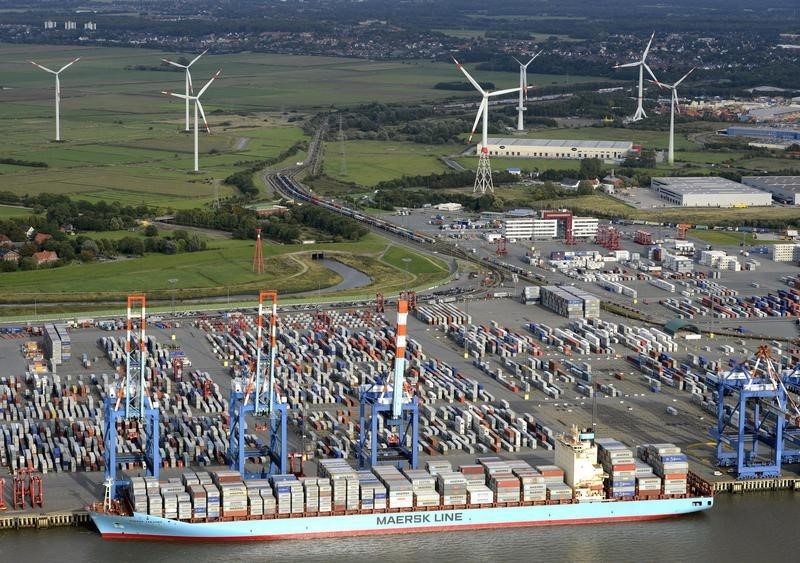BERLIN (Reuters) - German imports posted their steepest drop in almost two years in October after a strong rise the previous month, while exports also fell, but economists remained upbeat about the prospects for Europe's largest economy.
Seasonally-adjusted data from the Federal Statistics Office showed imports declining by 3.1 percent on the month, undershooting by far a consensus forecast for a 1.5 percent decrease. It was the sharpest fall since November 2012.
Exports also dropped by 0.5 percent on the month, though that was a better reading than the 1.5 percent decline that a Reuters poll had forecast.
"The weak imports are on the one hand a sign of weak domestic demand but on the other hand they are a consequence of the slide in oil prices," said Christian Schulz, economist at Berenberg Bank.
On an unadjusted basis, exports rose to a record high of 103.9 billion euros (£81.7 billion) while imports also climbed to their highest level in two years.
But Schulz said foreign trade should nonetheless provide impetus in the fourth quarter, adding that important markets like the United States and the United Kingdom were growing strongly while demand in the euro zone had also stabilised.
A breakdown of unadjusted trade data showed exports to the euro zone rose by 1.9 percent in October compared with the same period last year, while exports to countries outside of Europe were up by 6.3 percent.
Exports climbed at a faster pace than imports in the third quarter, helping trade to make a positive 0.2 percentage point contribution to gross domestic product (GDP) in the third quarter.
Nonetheless, the German economy, once revered for its strong growth even during the euro zone crisis, skirted a recession in the July-September period after contracting in the second quarter.
The outlook for the fourth quarter is rosier. Business and investor sentiment improved in November after months of decline, industrial orders have surged and European Central Bank President Mario Draghi has said the weakening of the euro exchange rate should boost exports.

However, output has increased modestly, manufacturing activity shrank in November at the fastest rate in 17 months and the Bundesbank has slashed its growth forecasts for this year and next.
(Reporting by Michelle Martin; Editing by Madeline Chambers and Louise Heavens)